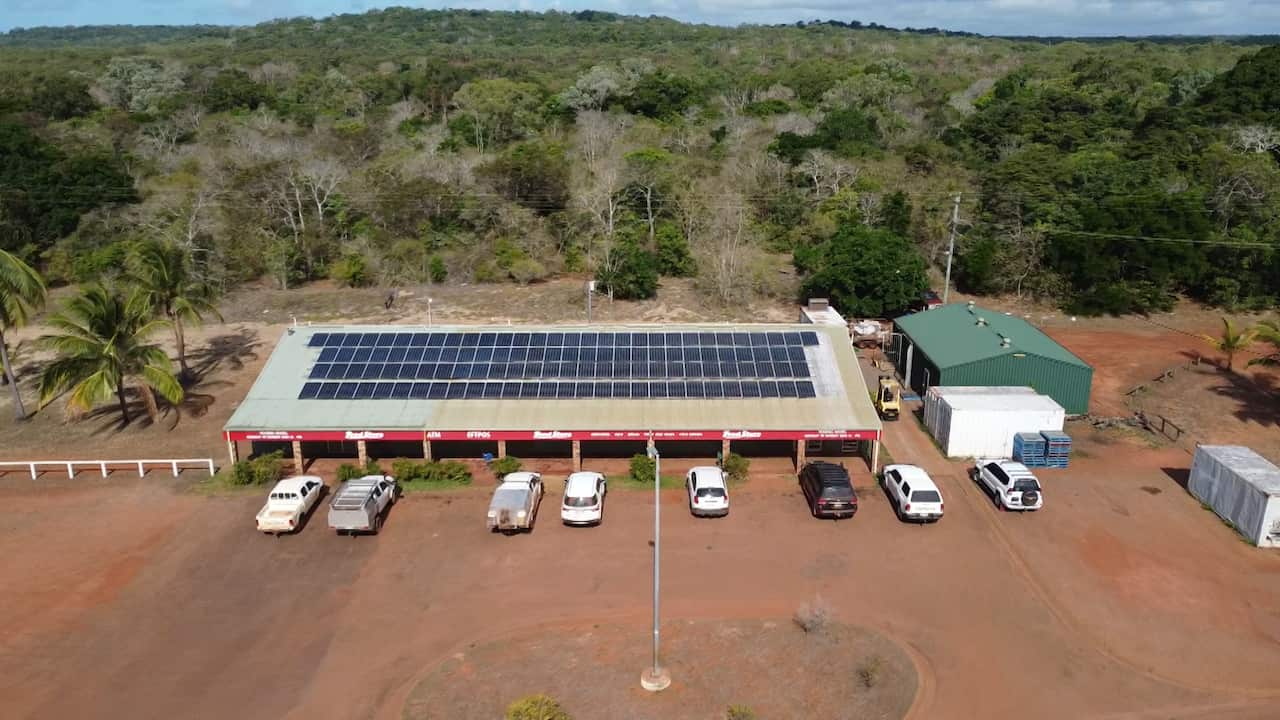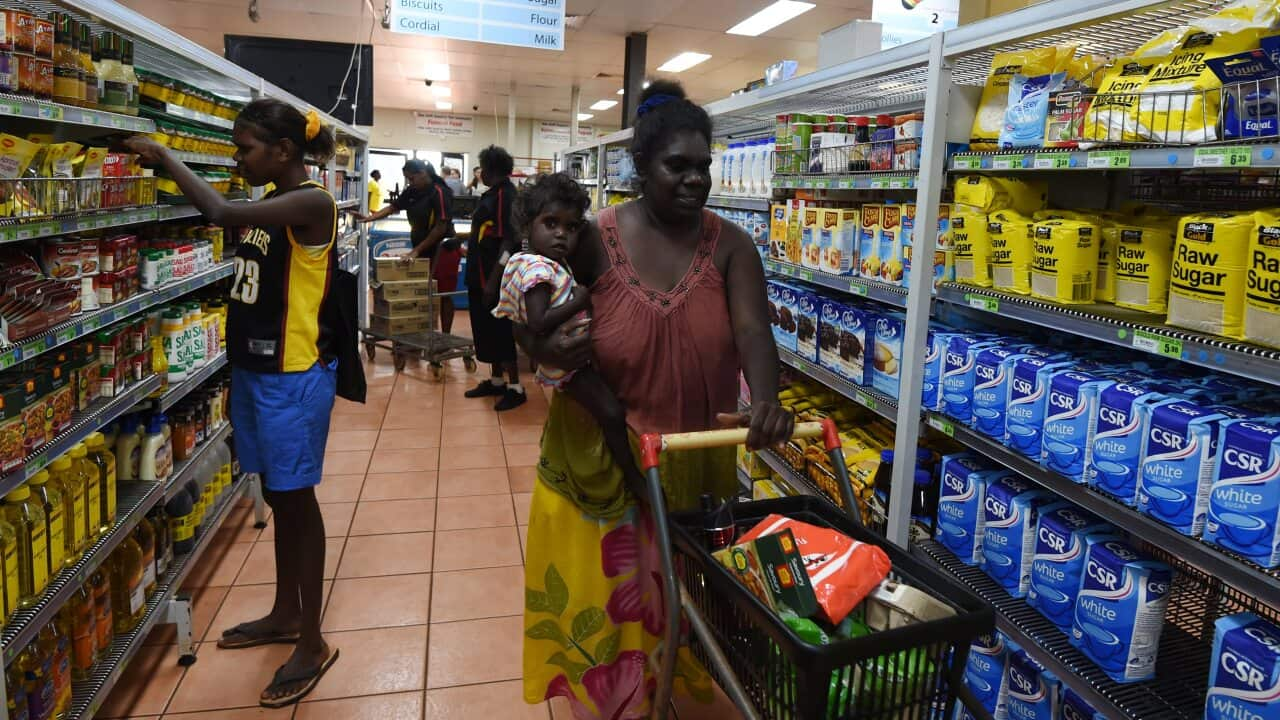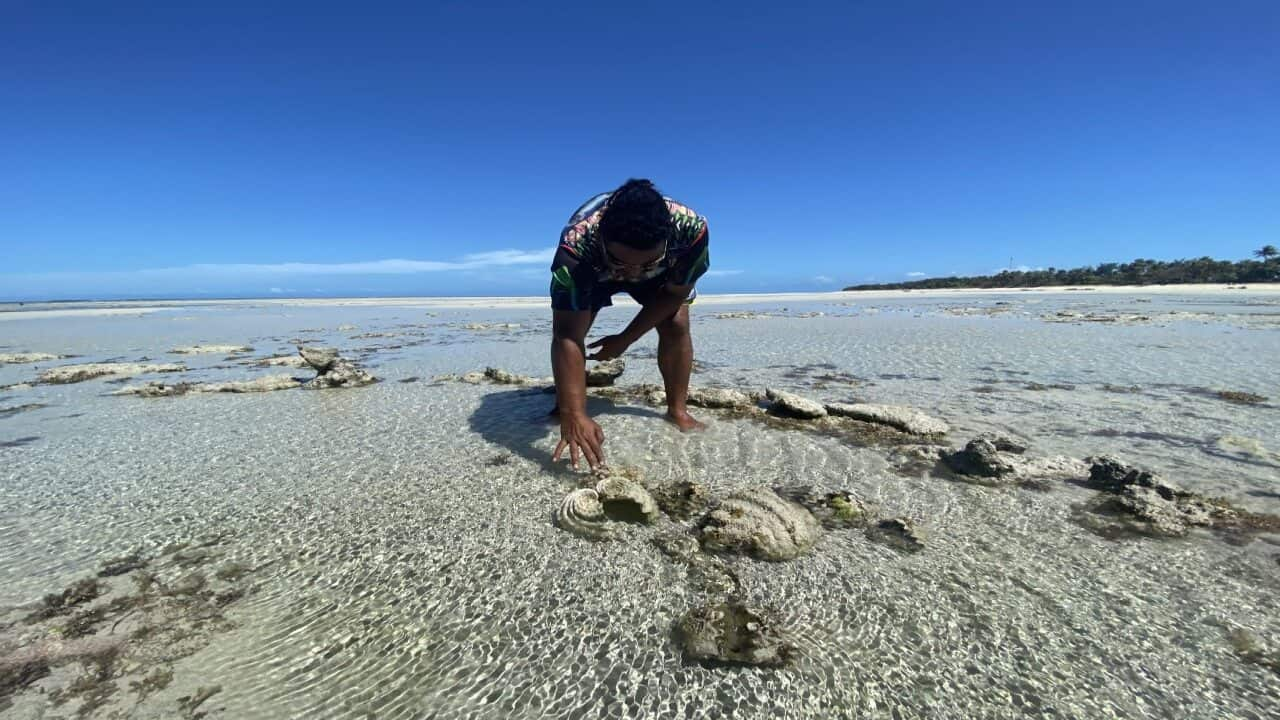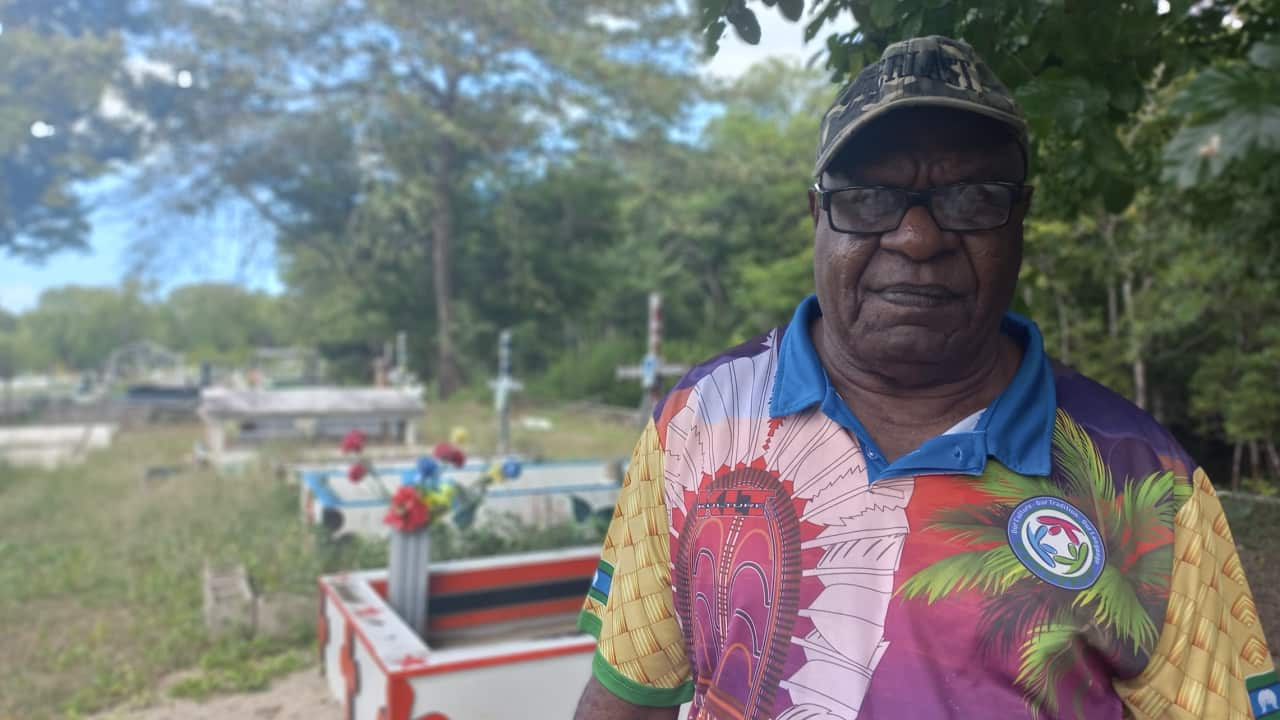Visiting the grocery store can be an eye-watering experience on Australia’s northern tip - in the northern peninsula area and across the Torres Strait islands.
Cafe owner Ebony Tamwoy felt she had no choice but to take action and do what she could to help ease the strain, from her community of Injinoo.
In some cases, the price of essentials for women like pads and tampons is nearly double what shoppers would find in the city.
And without a car, it can be difficult to reach the supermarket.
“There are no shops in Injinoo and it’s hard with transport to get to the shop, because the shop closes at a certain time - even public transport we don’t have it here,” she told NITV’s The Point program.

Ebony Tamwoy's cafe Timmy's is one of the places women in the Northern Peninsula Area can access free toiletries through the happy box project. Source: NITV
"I think it’s good for young women to have access to all this stuff, because all of the prices in the shops are really high," she said.
Each week Ms Tamwoy stocks a table in her cafe ‘Timmy’s’ with boxes of menstrual products as well as soaps, hair care, and toothpaste for women to take as they need, giving them easier access to essentials and reducing any stigma around them.
“When women come here and grab the stuff they are comfortable and they grab what they need and have a yarn here,” Ms Tamwoy said.
Community store also struggling
It’s not just the residents struggling with the high cost of living.
Arthur Wong owns the only independent grocery store in the region - in Seisia, about 15 kilometres from Injinoo.
All profits from the community enterprise, are returned to Seisia.
But Mr Wong said he is struggling to keep prices at a reasonable level as overheads continue to grow.
“We have to make money to make sure people are employed - we have 30 to 35 people employed (with) no government subsidy, no help,” he said.
“The supermarket is the one that makes the money to try to move forward and create industry.”

The owner of the independent supermarket in Seisia says rising costs make it hard for businesses to operate in the region. Source: NITV
Freight company Sea Swift - the only freight company servicing this region - recently raised its fees by 14.5 per cent, blaming increasing labour and maintenance costs since the COVID pandemic.
“Unfortunately, we reached a point where freight charges did not cover the cost of supporting our freight network,” a statement to The Point, from Sea Swift’s CEO Dwayne Freeman said.
“Our recent price change has meant an increase of approximately 11 cents on the average cost of transporting a litre of milk, 4 cents on a loaf of bread, 6 cents on a kilo of flour, and 11 cents on a kilo of potatoes to remote island communities.
“In line with our ongoing commitment to connecting Northern Australia, this price change helps us to ensure the continuation of safe and reliable scheduled freight services to remote and coastal communities now and into the future.”
Gardens deliver healthier options
On nearby Thursday Island, Aunty Goeynaw Isua has turned to gardening in the face of the increasing cost of living.
She grows as much of her own food as possible.
“At the moment pensioners can’t afford [fresh fruit and vegetables], they’ll go for a cheaper way which is most of the time not good for your health,” she said.
“We’re talking about changing our lifestyle but it’s not easy because most of the time it’s not cheap, the food that keeps you healthy.”

Aunty Goeynaw Isua is very proud of the fresh food she grows in her garden Source: NITV / Kerri Ritchie
“I think the local government should come up with a way with the supermarkets to find a solution on how our people can afford this because most of our people are low income earners,” she said.
For Aunty Goeynaw, growing her own food has many benefits - not just the savings.
She says gardening is an important part of Torres Strait Islander culture, with the added bonus of keeping her fit and healthy.
She wished more people could access healthier options.
“We do have diabetes in our family and this is what encouraged me to lead that healthy lifestyle to beat it in a way,” she said.
“Part of that is exercise daily whether it’s doing things around the house or going for a walk.”
She’s doing what she can to spread her message of healthy food.
Aunty Goeynaw volunteers her time to teach children how to cook healthy food, as well as passing down cultural knowledge like how to weave.
“It’s wonderful for children to be seeing elders like myself, older people, to promote this is why I am standing here because I have changed my lifestyle to a healthy lifestyle,” she said.
Communications also a challenge
But when things do go wrong, the remote living can have dire consequences.
Poor communications services remain an additional challenge to residents.

Francis Elu and Peri Mudu found themselves in a desperate situation when they tried to call for an ambulance for their mother Source: NITV / Keira Jenkins
The reception in their home was so patchy, they couldn’t even make the emergency call.
“We made the call in the house but there wasn’t much reception,and so we went out onto the verandah and then we had to come downstairs,” Mr Elu said.
The couple did eventually get through to emergency services and an ambulance came. The family flagged it down outside of their home.
Ms Mudu’s mother is now at home safe and well, and despite the challenges they say Seisia is their home, and they wouldn’t want to live anywhere else.






